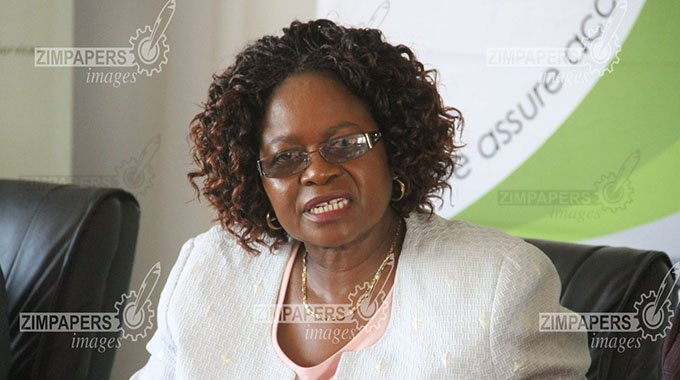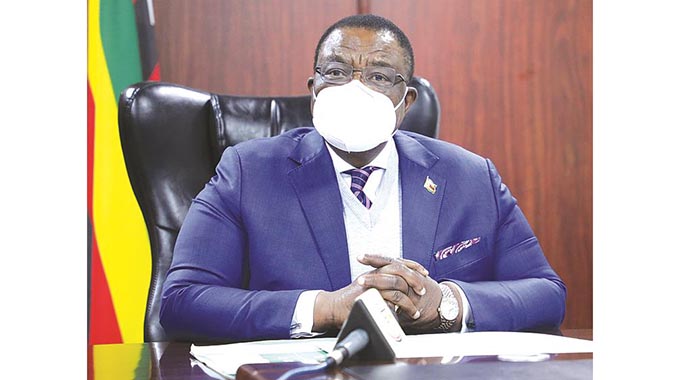Auditor General flags 7 councils

Zvamaida Murwira
Senior Reporter
Seven urban councils have been rapped by Auditor General Mrs Mildred Chiri for operating without key policy documents, failure to review and approve their payroll prior to processing, absence of control over contracted out services, improper management of council assets and development of settlements without approval of the responsible minister.
The seven councils – Gweru City Council, Masvingo City Council, Mutare City Council, Chitungwiza Municipality, Bindura Municipality, Chinhoyi Municipality and Marondera Municipality – like almost all urban authorities, are controlled by councillors elected on the MDC-A ticket.
In her latest audit, she found Gweru City councillors were yet to pay for the stands they had acquired at concessionary rates with a condition to pay in full within their term of office, which had since expired. There were no records showing the stands sold in Gweru.
Gweru City Council was operating without risk management policy, recruitment and selection policy, housing policy and procedure manual for central stores.
Masvingo City Council had finance systems that allowed everyone to make changes and amendments as administrators, which had led to fraud losses, was not controlling fuel withdrawals, and had not been depositing parking charges paid in rand. the council was also allowing spillage of sewage into nearby rivers and streams feeding into the main source of water.
Mutare City Council did not bank all cash collected coupled by failure to provide a breakdown of $1.1 million written off as part of a discount promotion.
In Chitungwiza, settlements were sprouting with no basic essential services. Bindura Municipality paid US$90 850 towards the acquisition of a front-end-loader in December 2018 but the machine had still not been delivered at the time of audit in October 2020. The same council had also billed accounts with no valid names, some of which had been created by unknown system users.
Chinhoyi Municipality was losing 62,5 percent of its treated water, on the other hand, yet Shackleton and Alaska suburbs had 1 694 households without access to potable water and Rujeko suburb had 365 out of its 380 households without water accounts.
That municipality’s traffic management system agent was not consistently remitting monthly dues despite collecting cash daily. Marondera municipality did not have a list of leased properties.
Going into detail on the Gweru City Council land sales, Mrs Chiri said: “I was not availed with supporting documents to show that the Council has a record of all stands sold, their purchase price, the beneficiary, amounts paid to date and outstanding balance on each stand. During the current year the listing provided to audit showed that stands worth $1 714 784 were sold; however, the amount could not be traced to the financial statements,” said Ms Chiri in her report.
Councillors did not fill in stop order forms neither did they make any payment arrangement towards the purchase of stands allocated to them.
In its response, the city’s management acknowledged the audit observations and promised to address the issues raised.
With Masvingo City Council, audit noted that the IT administrator was performing accounting functions that included data capturing and passing journals in the system coupled by the fact that ledger clerks had privileges to make amendments within the system.
“This created a loophole in the system as almost everyone had administrative privileges and could manipulate daily receipts in the receipting menu. As a result, the Council lost at least $78 000 due to fraud perpetuated by two (2) clerks,” said Ms Chiri.
On fuel management, the audit found that Masvingo City Council did not maintain a comprehensive record of fuel use last year. “The fuel register availed did not indicate the name of the person drawing down fuel from stores and purpose for which the fuel was required. Absence of a comprehensive record may create opportunity for fuel misappropriation,” said Mrs Chiri.
She also found that there were a number of motor vehicles with registration books on file that could not be physically verified.
It was also observed that parking fees for 2018 revealed that fees receipted in rand amounting to ZAR1 308 were not deposited into the council’s bank account. In response Masvingo city council management said it had started investigating the issue.
With Mutare City Council, it was noted that there were instances were cash collected was not banked which was eventually traced to money advanced to certain employees but no documentation showing this was authorised was shown to the auditors.
Ms Chiri noted that Mutare City Council paid a supplier US$330 000 in 2012 for the supply of water pipes which were yet to be delivered eight years later at the time of audit in December 2020.
“I could not validate amounts written off amounting to $1 175 793 as the breakdown of the total figure was not availed. Explanations proffered by management were that the write-offs arose from the discount promotion that ran from March 2015 to June 2015 following a council resolution,” she said.
On management of school fees, Ms Chiri noted that Mutare City Council’s school fees benefit had no stipulated allocation per person and was also silent on what items constituted school fees.
“As a result, school fees up to A-Level were pegged using Government approved rates, however management violated this resolution as their children were sent to group A schools and council was paying in full for tuition, boarding fees, desk fees, school magazines, camp fees and other school related charges,” she said, adding that council was also paying for accommodation at university for children for employees.











Comments